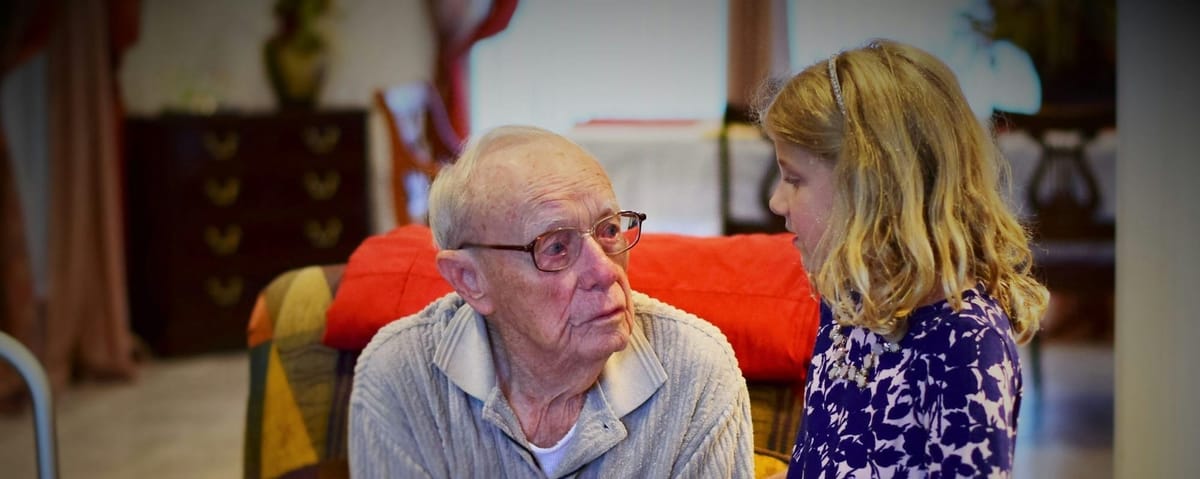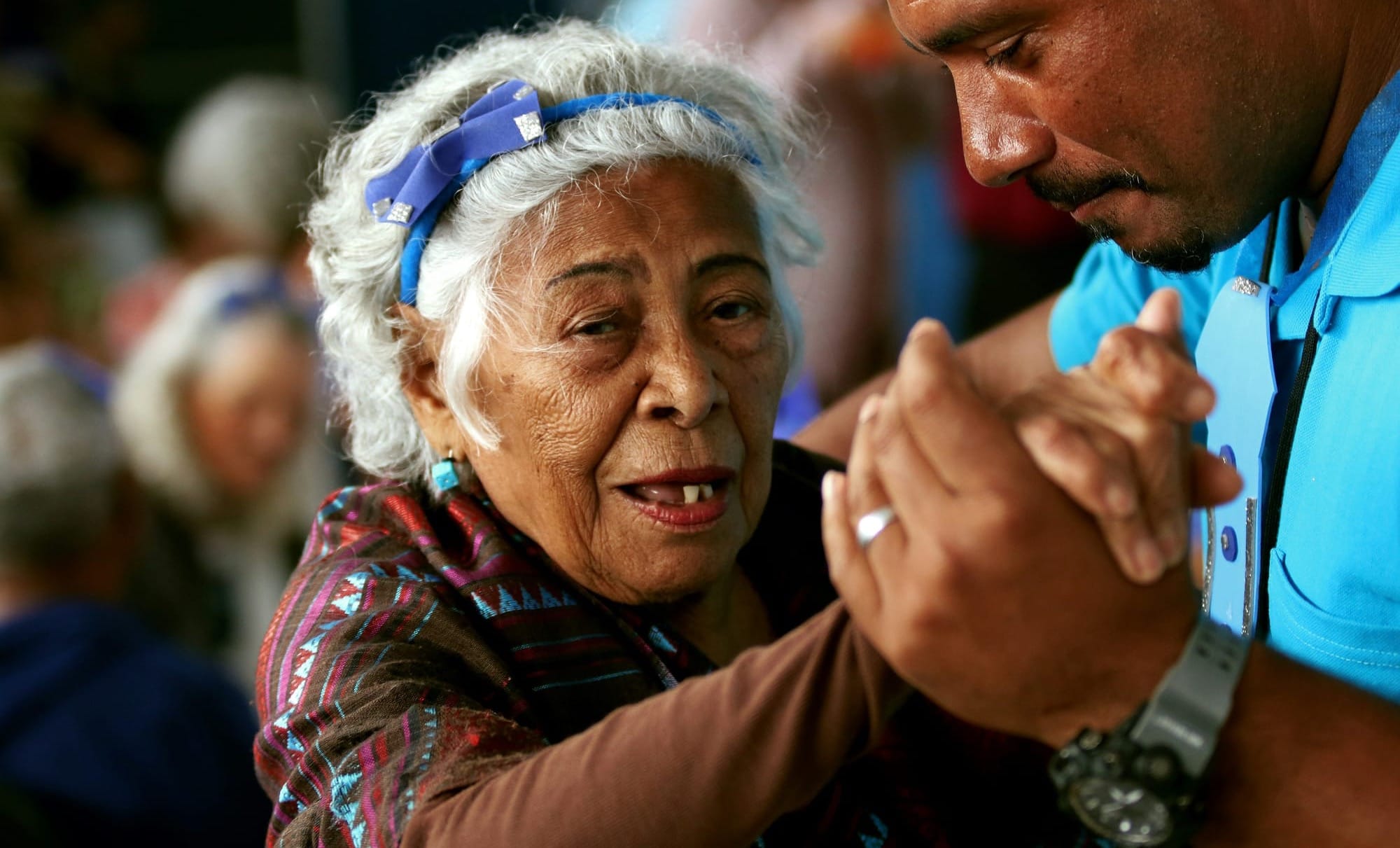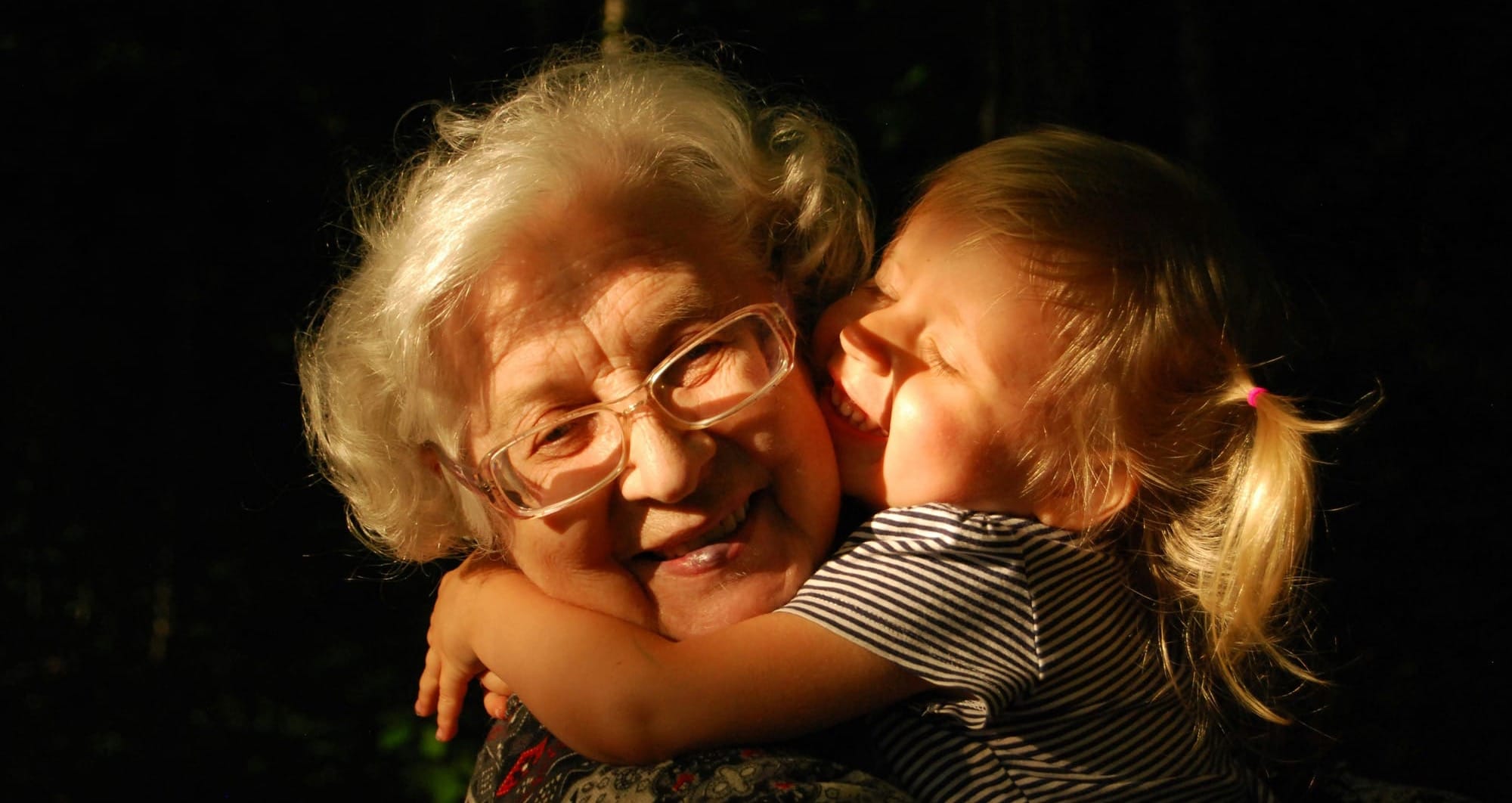Thoughts: Why caregiving, really?

When I visited my 92-year-old mother at her assisted living apartment the other day, two of the grandkids and their parents came along. My Mom wasn’t in the greatest shape, having recently broken two ribs in a fall. Still, it was a lovely visit, which included a springtime walk. But the part that sticks with me is how excited our 7-year-old grandson was to help. He helped his Great-grandma slip her coat on, get it zipped, and get her sunglasses and visor in place. He also helped with the wheelchair, adjusting the footrests and pushing it on the walk.
His eagerness struck me because I have been thinking a lot about caregiving, as well as doing a lot of it between caring for grandkids and caring for my Mom. Sometimes my attitude towards caregiving gets stuck in the negative: wishing to do things I can’t do because I’m caregiving, or considering the disdain with which my (zero) academic output and (zero) exciting adventures would be met by many of my former colleagues. In other words, I sometimes feel the prevailing societal attitude toward caregiving, which is to undervalue it.
In the case of caregiving for my mother, I also sometimes wonder about the motivation. “There is so little future there,” this voice of doubt goes. “Why invest the time?” This thought echoes my father’s attitude toward working with children with developmental delay. He used very similar phrasing to discourage my sister from going into that field. The children she enjoyed working with had a future, of course—just not one he considered worth the effort.
Much of philosophy similarly either ignores or devalues needing or doing caregiving. Philosophy typically values rational thought as the highest achievement, leaving children and cognitively disabled people, including elders, outside of privileged circles. It also tends to value autonomy and independence, ignoring the indisputable facts of childhood dependence, great likelihood of dependence on others during times of illness or aging, and the interdependence of even healthy adults, not to mention those with some degree of disability.

Fortunately, I know from other influences and perspectives that it’s just plain wrong to undervalue caregiving and to respect only certain human possibilities. These other points of view help me reboot my doubting days.
One other perspective is the currently mundane advice to “live in the moment.” Children, especially young children, do this—doing what catches their attention, not understanding consequences, laughing with joy, sobbing in despair…and then onto something else. Even in the teen years, the present typically outweighs context and future perspectives. So to live in the moment with the grandchildren is to meet them where they are. Increasingly, this is the case with my Mom, too, as her memory of recent events becomes less reliable, and her focus goes to feeling comfortable, secure, loved, and engaged in the moment.
Not that living in the moment is easy for me! I have an obsession for being productive, so I have to trick myself with a schedule that says (at least implicitly), “Monday from 12-5, live in moment with the grandchildren, Tuesday from 6-8, live in the moment with Mom.” The specificity helps corral all the other demands (or wishes) for my time—exercise!, clean the kitchen!, write the blog!, read!—so that I can actually relax enough to be present. I also find that living in the moment requires alertness: I have to reinvent engagement with the grandchildren as their moods and interests change, and with my Mom, as her abilities and needs change.
Second, my whole life I have heard Jesus’ new commandment: “Just as I have loved you, you also should love one another. (John 13:34)” The stories that illustrate Jesus showing his love are about acts of service—healing disease, washing the disciples’ feet, and dying on the cross to save the rest of us. In this Christian teaching, a worthy life isn’t one in which a person gets ahead, or is the smartest or richest, it’s a life that is of service to others.
Talk about not easy! But however imperfectly I manage to love others, in moments of doubt about the choice to be a caregiver, it’s helpful to have a model for a life well-lived that counters the culturally-approved high-achievement model.
Then there is the secular ethics of care. Ethicist Eva Kittay sums up the central intuition of this ethical theory her book Learning from my Daughter: The Value and Care of Disabled Minds by explaining, “…we are all ‘some mother’s child.’” This basic fact about being human emphasizes that we all are utterly dependent on others at certain stages of life. But the ethics of care extends this thought to recognize that our dependence on others doesn’t go away—we support each other emotionally, physically, economically, and (sometimes) politically throughout life. In this context, recognizing that mutual dependence through mutual caring (with the emphasis on mutual!) is the ethical ideal. And again, mutual caring for everyone. Eva Kittay’s thoughts on mutual caring, for example, have been inspired by caring for her profoundly disabled daughter Sesha.

Once again, this perspective doesn’t come naturally to me. I’m competitive, achievement oriented—not to mention introverted—and by dint of that have progressed in business ranks and (a little) in academia. Yet I know that the ideals of the ethics of care are fundamentally right, and a much more sustainable way to center a life. The ideals even help undermine competitive caring—another form of self-doubt in which you despair because someone else is more self-sacrificing, does more good in the world, gives more money, or helps more people. The ethics of care recognizes that someone has to take care of the people close by—freeing others to take care of people far away.
So all these influences, and seeing our grandson so eager to care for his Great-grandma, helps me see that act of caring for others as a gift to the future. I’m not taking credit for my grandson’s eagerness to care for Great-grandma. His parents clearly have most influence, and then (with this kid especially) his own ideas take the lead. But I do believe that by modeling caring, and by reinforcing caring when our grandson offers it, I have made a couple of small offerings to the world. In the moment, but with future resonance. Maybe the world doesn’t care—but maybe it will one day.